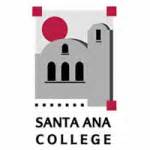Course Syllabus
 Biology 109 Laboratory Syllabus
Biology 109 Laboratory Syllabus
Course Description: This laboratory is a complement to Biology 109 lecture, and this laboratory can be taken as a co-requisite or after passing the lecture. It contains hands on activities to learn a variety of Biology subjects with several different in class activities, such as web exercises, videos, group activities, and use of equipment such as microscopes and electrophoresis.
Textbook Information:
Laboratory Manual for Biology 109 (by Dr. Jorge Lopez)—purchase in bookstore. The correct edition has a purple flower on the cover
Additional Course Information:
- Attendance policy: If you miss 3 lab periods (they do not have to be consecutive), you will be dropped from the course. If you miss 2 consecutive lab periods or the midterm, you must contact me ASAP to avoid being dropped from class but you must have an excusable, documented absence.
- Make-up labs are permitted only with written documentation of extenuating
circumstances. You may make up a maximum of 2 labs. Labs can be made up only
during the same week as the missed lab.
- Make-up exams: To take a practicum in a laboratory section other than the one in
which you are registered, you must: (1) obtain written permission from BOTH your
registered instructor and the instructor in whose class you wish to take the
examination at least 24 hours before you are to take the examination, (2) present at
least one photo ID to the instructor administering the test, and (3) leave the signed
permission slip with the examination. No instructor except your registered
instructor is required to give you a practicum.
- Accommodations: A student with a disability, who would like to request an academic
accommodation, is responsible for identifying herself/himself to the instructor and
to the Disabled Student Programs and Services (DSPS). To make arrangements for
academic accommodations, contact the Physical Disability Center in Johnson Center,
U-103, or phone (714) 564-6264, TTY (714) 564-6284 for a referral to the
appropriate DSPS Department.
-
Safety:
- No open toed shoes are allowed in the lab
- No eating or drinking allowed
- Goggles are required for the chemistry & animal anatomy labs
- Academic Honesty Policy (from 2012/2013 SAC Catalog, page 33): Students at Santa Ana College are expected to be honest and forthright in their academic endeavors. To falsify the results of one’s research, to steal the words of another, or to cheat on an examination, corrupts the essential process by which knowledge is advanced. Academic dishonesty is seen as an intentional act of fraud, in which a student seeks to claim credit for the work or efforts of another without authorization, or uses unauthorized materials or fabricated information in any academic exercise. As institutions, we also consider academic dishonesty to include forgery of academic documents, intentionally impeding or damaging the academic work of others, assisting other students in acts of dishonesty or coercing students into acts of dishonesty.
In cases where a violation of academic honesty is discovered, the faculty member is encouraged to file an “Academic Misconduct Incident Report” form and distribute the form to the appropriate offices listed.
In matters relating to academic honesty violations, the primary responsibility for disciplinary proceedings rests with instructor and the academic division where the violation allegedly occurred. The Dean of Student Affairs will assist in all College-wide sanctions.
There are two categories of sanctions: Limited and College-wide. Limited sanctions include an academic action such as assigning a lower grade or a grade of “F” for the assignment, project, or test. College-wide sanctions include any sanction that will affect a student’s standing with the college-at-large, up to and including suspension or expulsion from the College.
Website: http://sac.edu/studentservices/admissionsrecords/pages/academic-honesty-policy-.aspx)
- Section transfers: Students are not permitted to change sections after week 2 of the semester. Exceptions for documented extenuating circumstances will be handled on a case by case basis. The instructors of both sections must be informed and must agree to any transfers.
Student Learning Objectives:
Communication Skills
- Reading and Writing - Students will develop their ability to comprehend
readings on Biological subjects.
- Reading and Writing--Students will learn the basics of the technical
vocabulary of Biology.
- Thinking and Reasoning: Critical Thinking - Students will develop their critical thinking skills by evaluating scientific evidence to reach valid conclusions.
Meet Your Instructor: Dr. Christine Palmier, BA and MS in Biology from California State University, Long Beach; Doctorate from UCLA in Biochemistry & Molecular Biology
Course Syllabus: biol109labsaturdayspalmier#40278.pdf
Course Summary:
| Date | Details | Due |
|---|---|---|